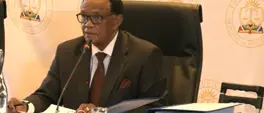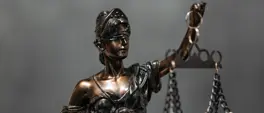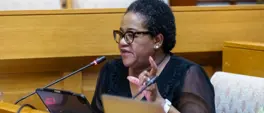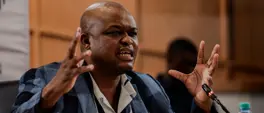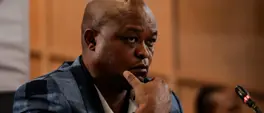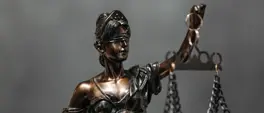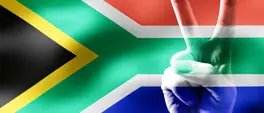Jamil F. Khan | Queer Muslims confront a culture of exclusion in South Africa’s Islamic communities
Jamil F. Khan
13 May 2025 | 10:47For centuries queer and gender diverse people, across the world, have resisted the heteropatriarchy that demands our invisibility and silence in public and private spaces.
Fear has been struck into the hearts of many queer and transgender Muslims in South Africa. A devastating silencing has befallen a community that has struggled, and continues to struggle, to find spaces of belonging where they can reconcile their gender and sexual identities with their faith practices.
For centuries queer and gender diverse people, across the world, have resisted the heteropatriarchy that demands our invisibility and silence in public and private spaces.
Despite the gains of this resistance, the struggle continues. In this social moment, where authoritarian governments in Europe, the USA and the global South are either advancing existing systemic queerphobia and transphobia or gutting hard-won constitutional protections for queer and trans people, we are called to evaluate our collective humanity yet again. The recent murder of Imaam Muhsin Hendricks, whose life’s work resisted that very silencing and exclusion, is such a call.
South African Muslims are one of a few groups of Muslims in the world who can rely on constitutional protections of safety from persecution. When the constitution of this country rejected the deeply discriminatory social contract of apartheid, Muslims were accounted for in the vision of a harmonious, equal society.
Yet, in spite of this protection, Muslims find themselves governed by a different constitution, which shapes what a Muslim life can look like. There is a problem of silence around the extreme heteropatriarchy within the Muslim community.
This is not to suggest that it is not challenged, but that those who do, pay a heavy price – sometimes the ultimate price, as the late Mushin Hendricks did. This heteropatriarchy serves as the core value of the Constitution that Muslims are governed by in South Africa.
The outcome is a culture of misogynist, queerphobic, anti-Black violence veiled by a thin scriptural veneer of piety.
This culture is a private one, encouraged by the almost mystical sense that is attached to Islam by many non-Muslims here. The issue of difference and diversity is made peripheral in this culture, and in a space where religious affiliation makes everyone “the same”, there is no pathway into addressing the replication of apartheid and colonial divides that governed us before, because difference has been wiped clean by Islam.
The only trace that remains is the knowledge of how to use those differences without addressing them.
These divisions are also understood to be the rules of Islam, which cannot be challenged, for its creator is perfect. Under this regime of rules women, queer people and trans people occupy a very precarious place that is subject to surveillance and discipline.
For this reason, the Open Mosque in Cape Town was started to afford Muslims rejected by the heteropatriarchy of South African Islam the right to worship in equality. This equality is promised to all South Africans under our constitution.
While it is commendable that the Open Mosque exists – again, a reality enjoyed through our constitution – the work remains to be done within the culture that has been created amongst Muslims. Places of worship are public spaces open to all in this country, and mosques have been sites of radical resistance to apartheid and colonialism.
Muslims have lost their lives in pursuit of a South Africa free from discrimination, making it a responsibility of South African Muslims today to reject and dismantle the oppressive systems that have normalised the harm done to women, queer and trans people, and even Black people within the Muslim community.
Nearly 31 years after apartheid, there can be no justification for religious leaders in general, and Islamic leaders in particular, to allow and encourage discrimination prohibited in our Bill of Rights.
The number of queer Muslims who have “taken themselves out of the fold of Islam” because they could not silence their spirits to conceal who they are is too big for it not to be seen as a systemic problem. To be complicit with such harsh discrimination, encourages the extreme violence that ended Mushin Hendricks’s life because it says that no matter how extreme the action, nobody will step in to stop it.
This complicity is fuelled by the idea that these instances are spectacular anomalies that don’t reflect on the culture that Muslims share. Hence, it can always be dismissed as simply unfortunate.
On the underside of this problem are the thousands of deeply hurt gender diverse Muslims who have been ostracised from their homes and communities, looking to turn to their religion for comfort and guidance, only to be ostracised there too. This should not be possible under the constitution of South Africa.
During a private commemoration of Muhsin Hendricks’s life, I heard from a participant who noted, in light of this normalised discrimination in the Muslim community, that the equality of the mosque must be demanded in the name of the constitution.
Though Muslims may heed only the laws of Islam as a compass for their personal sense of morality, they are, as we all are, responsible for upholding and protecting the human rights of everyone.
If the interpretation of what Islam decrees amounts to discrimination against another human, then surely such an interpretation is to be scrutinised. More importantly, surely such decrees cannot outrank the Constitution of the country and, as such, are liable to accountability.
The problem of silence has claimed yet another life, and in a moment where the humanity of Muslim people is under scrutiny during the decimation of life in Gaza at the hands of Israel’s genocide, South African Muslims have to look inward and identify the oppressor in themselves.
This responsibility comes from a legacy of anti-colonial and anti-apartheid struggle and the solidarity it demands. While many South African Muslims resonate with Palestinian resistance on account of a shared Islam, solidarity should be based on a shared humanity.
If we understand that “our freedom is incomplete without the freedom of the Palestinians”, then nobody can claim justification for any form of oppression. South African Muslims and Islamic institutions have a responsibility to rethink their internal constitution in line with South Africa’s constitution for the benefit of all who find a spiritual home in Islam.
Jamil F. Khan is an author, doctoral critical diversity scholar, and research fellow at the Johannesburg Institute for Advanced Study.
Get the whole picture 💡
Take a look at the topic timeline for all related articles.



